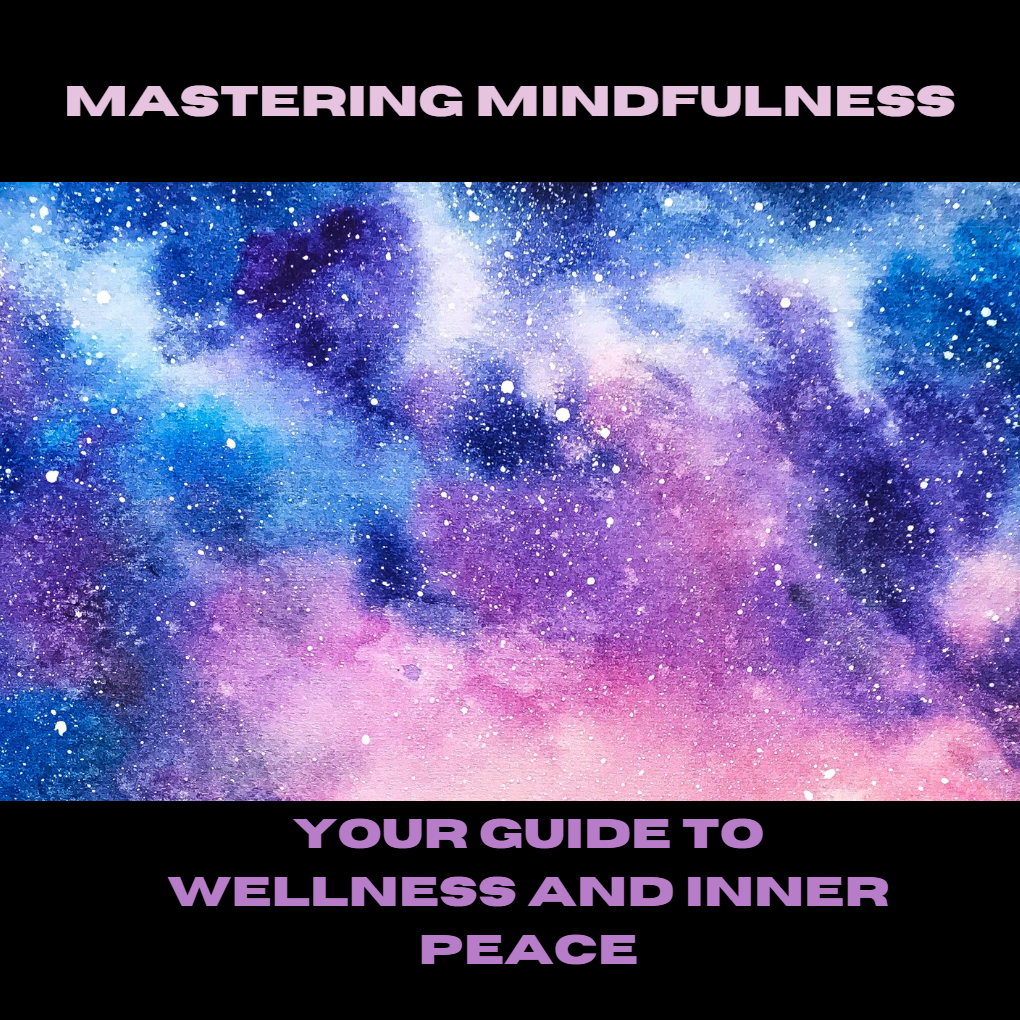Mastering Mindfulness: Your Guide to Wellness and Inner Peace

Introduction:
In today's fast-paced world, finding moments of peace and tranquility can be challenging.
Mindfulness, the practice of intentionally paying attention to the present moment without judgment, has gained popularity as a powerful tool for enhancing wellness and inner peace.
In this blog post, we will explore the concept of mindfulness, its benefits, and how it can be incorporated into daily life for improved physical, mental, and emotional well-being.
Understanding Mindfulness:
Mindfulness is a state of conscious awareness of the present moment, including our thoughts, feelings, sensations, and surroundings.
It involves intentionally bringing our attention to the present moment without judgment.
By practicing mindfulness, we can cultivate a greater sense of awareness, reduce stress, improve focus, and enhance overall well-being.
Incorporating Mindfulness into Daily Life:
Incorporating mindfulness into our daily routines can be a transformative practice.
Mindful eating, mindful breathing, and other mindfulness techniques can be easily integrated into our daily lives to help us stay present, reduce stress, and improve our overall well-being.
By intentionally bringing mindfulness to our daily activities, we can enhance our connection with ourselves and the world around us.
Mindfulness for Emotional Wellness:
Emotions play a significant role in our overall well-being.
Mindfulness can help us manage and regulate our emotions, cultivate self-compassion, and develop empathy towards ourselves and others.
By practicing mindfulness, we can become more aware of our emotions, learn to respond to them in a healthy way, and cultivate emotional resilience.
Mindfulness for Physical Wellness:
Physical health and well-being are closely linked to mindfulness.
Mindful movement, exercise, and rest can help us develop a deeper connection with our bodies, enhance our physical health, and improve our overall well-being.
By mindfully engaging in physical activities, we can become more attuned to our bodies and cultivate a positive relationship with our physical health.
Mindfulness for Mental Wellness:
Mental health is crucial for overall wellness, and mindfulness can play a significant role in enhancing our mental well-being.
Research has shown that mindfulness can help manage symptoms of anxiety, depression, and other mental health conditions.
Mindfulness techniques can also enhance cognitive function, memory, and creativity, promoting overall mental wellness.
Mindfulness in Relationships:
Mindfulness can also improve our relationships with others.
By practicing mindfulness in communication, conflict resolution, and building deeper connections, we can cultivate empathy, compassion, and gratitude towards ourselves and others.
Mindful relationships can promote healthy communication, emotional intimacy, and overall well-being.
Mindfulness in Everyday Life:
Mindfulness can be integrated into various aspects of life, including work, parenting, and self-care.
Mindful decision-making, time management, and goal-setting can help us approach life's challenges with greater clarity and presence.
By incorporating mindfulness into our everyday life, we can cultivate a mindful lifestyle and enhance our overall well-being.
Conclusion:
In conclusion, mindfulness is a powerful practice that can enhance our wellness and inner peace.
By intentionally bringing our attention to the present moment without judgment, we can cultivate awareness, reduce stress, manage emotions, and improve our overall well-being.
Incorporating mindfulness into our daily lives can have a transformative impact on our physical, mental, and emotional health, leading to a more balanced and mindful lifestyle.
References:
- Kabat-Zinn, J. (2003). Mindfulness-based interventions in context: Past, present, and future. Clinical psychology: Science and practice, 10(2), 144-156.
- Davis, D. M., & Hayes, J. A. (2012). What are the benefits of mindfulness? A practice review of psychotherapy-related research. Psychotherapy, 48(2), 198-208.


